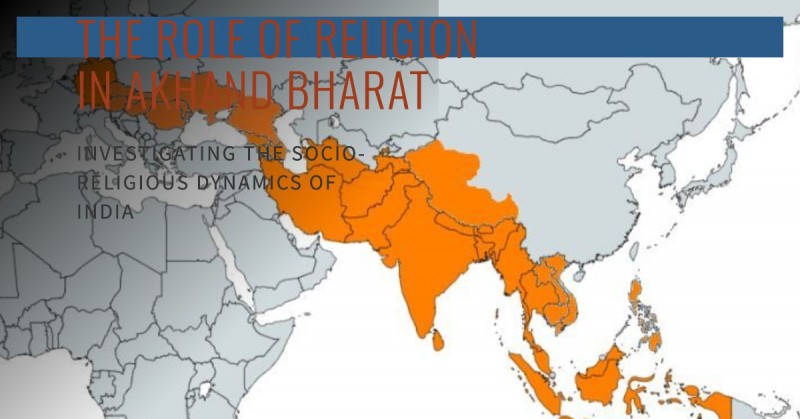
Religion has always played a significant role in shaping societies and cultures. In the context of India, the concept of Akhand Bharat, meaning "Undivided India," holds deep socio-religious significance. This article aims to delve into the socio-religious dynamics associated with the concept of Akhand Bharat, exploring the historical, political, and cultural influences that have contributed to its formation and continued relevance. By understanding the interplay between religion and the idea of Akhand Bharat, we can gain insights into the complexities of Indian society.
Historical Background
The concept of Akhand Bharat stems from India's historical context, particularly the partition of the Indian subcontinent in 1947. The partition resulted in the creation of two separate nations, India and Pakistan, based on religious lines. This division had a profound impact on religious identities and interfaith relationships, shaping the socio-religious landscape of the region.
Hindu Nationalism and Akhand Bharat
In recent decades, the rise of Hindu nationalism, often associated with the ideology of Hindutva, has revived the idea of Akhand Bharat. Hindutva emphasizes the cultural and historical unity of the Indian subcontinent, envisioning a unified India under Hindu-majority rule. Organizations such as the Rashtriya Swayamsevak Sangh (RSS) and the Bharatiya Janata Party (BJP) have championed this ideology, propelling it into mainstream discourse.
Religious Pluralism in India
India is known for its religious diversity and pluralism. Multiple faiths, including Hinduism, Islam, Christianity, Sikhism, Buddhism, and Jainism, coexist within its borders. This religious mosaic contributes to the socio-religious fabric of the nation, fostering a sense of tolerance, mutual respect, and shared values among different religious communities.
Cultural Unity and Diversity
While religious diversity is a defining characteristic of India, it also exhibits cultural unity through shared traditions and festivals. Festivals like Diwali, Eid, Christmas, and Baisakhi are celebrated with enthusiasm and participation across religious lines. Despite this unity, India's cultural landscape also showcases regional variations and identities, adding further richness to its social tapestry.
Akhand Bharat as a Political Idea
The concept of Akhand Bharat has political implications concerning India's borders. Advocates of Akhand Bharat argue for the reunification of territories that were historically part of India but are currently under the control of neighboring countries. This idea has generated debates and controversies, with opinions differing on the feasibility, desirability, and potential consequences of redrawing borders.
Socio-Religious Challenges
India's socio-religious dynamics are not without challenges. Communal tensions and occasional outbreaks of violence between religious communities have posed significant hurdles to societal harmony. Upholding secularism and ensuring religious freedom for all citizens remain ongoing concerns, requiring constant attention and efforts from the government and civil society.
Role of Religion in Nation-Building
Religion plays a crucial role in the formation of national identity and unity in India. It acts as a unifying force, providing individuals with a sense of belonging and shared values. Religious institutions also contribute to various social welfare initiatives, education, and community development, fostering a sense of collective responsibility and social cohesion.
Conclusion
The concept of Akhand Bharat intertwines religion, history, politics, and culture, reflecting the intricate socio-religious dynamics of India. Understanding the role of religion in shaping the concept of Akhand Bharat provides valuable insights into the complexities of Indian society. As India continues to navigate its path forward, balancing religious pluralism, cultural diversity, and socio-political aspirations will remain crucial for fostering a harmonious and inclusive nation.
Cyclone Biparjoy: Cancellation of Nearly 100 Trains, Here's What You Need to Know
What is the Mystery of Shushant Singh Rajput's Death?
Wrestlers' Protest: Khap Leaders Rally for 'Haryana Bandh' today